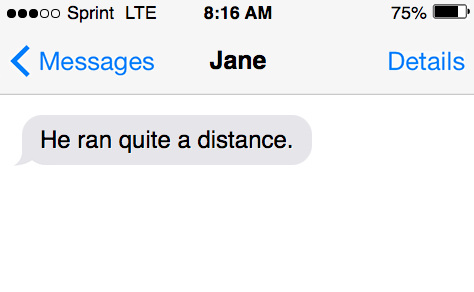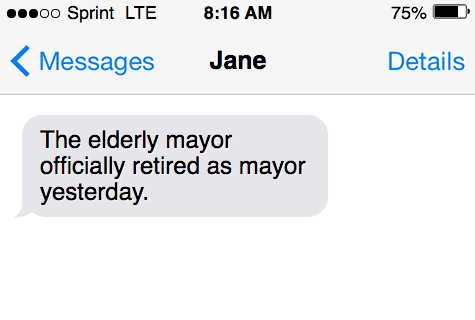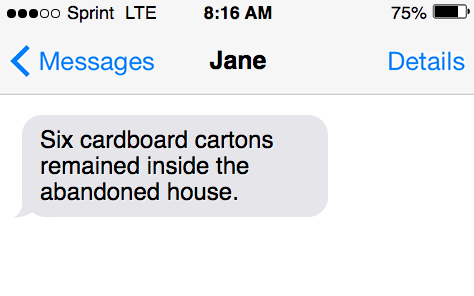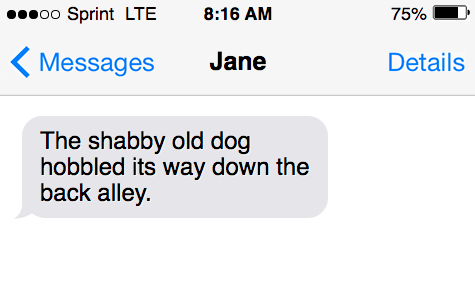What are complete subjects? What is a complete subject in grammar? Understanding both the subject and the predicate is vital to fully comprehend and characterize the topic at hand. The component of a sentence that tells us who or what the sentence is about is called the sentence’s subject.
A sentence’s predicate is the component of the sentence that contains a verb; it describes what the subject of the sentence is doing.
Learn what a complete, simple, and predicate subject is in this worksheet…
What are complete subjects?
A complete subject is the primary word or words and modifiers, in combination.
Words that provide more information or description to another term are known as modifiers. Articles, adjectives, and adverbs are all potential components of their make-up.
They can comprise complete sentences or clauses. It is common practice to place complete subjects at the beginning of a phrase or clause, although this is not always the case.

Asking yourself who or what is carrying out the action of the verb is the first thing you need to do to find full subjects. If the verb in question is not an action verb, you should inquire who or what the phrase is primarily discussing.
Sentence examples
1. The arthritic donkey hobbled its way down the back lane.
- The word “donkey” functions as an example of the verb “hobbled” in this context.
- “The arthritic” is used as a modifier for “donkey.”
- The issue, on its whole, is properly referred to as “the arthritic donkey .”
2. Four cardboard tubes remained inside the abandoned dwelling.
- Tubes are “carrying out” the action of the word “remained” in this phrase.
- The phrase “four cardboard” can be used as a modifier for “tubes.”
- The compound subject for this sentence is “four cardboard tubes.”
What is a simple subject?
A sentence’s simple subject is the noun or pronoun that serves as the sentence’s focal point. Whereas a complete subject contains the focal word and any modifiers that may be present.
The only thing that matters for the simple subject is who or what is “doing” the verb; no further qualifiers are allowed.

Sentence examples
1. Light bulbs were first invented by Thomas Edison.
- The word “invented” is being “done” by “Thomas Edison” in this particular statement.
- The subject at hand is none other than Thomas Edison.
2. Monkeys scare Charles.
- The verb “scare” is being “done” by “monkeys” in this particular phrase.
- The subject of monkeys is simple.
Difference between simple and complete subjects
A subject might be as simple as a word or words that act as a verb. A simple subject doesn’t contain any further data or information.
On the other hand, a complete subject consists of the keyword or words in addition to any modifiers that can be present.
The distinction between simple and complete subjects can be better understood with the assistance of a few examples.
1. The shabby old dog hobbled its way down the back alley.
- The word “dog” is the clear focus of attention in this clause.
- One of the modifying phrases that may be applied to the dog is “the shabby old.”
- The subject in its entirety is denoted by the phrase “the shabby old dog.”
2. Six cardboard cartons remained inside the abandoned house.
- Boxes are the uncomplicated focus of the sentence’s attention.
- The phrase “six cardboard” is included among the modifiers for boxes.
- The subject in its entirety is denoted by the phrase “six cardboard boxes.”
The distinction between the simple subject and the complete subject is evident.
The simple subject consists of only the subject and nothing extra. The simple subject, in addition to any other modifiers, makes up the complete version of the topic (the complete subject).

Prepositional phrases and complete subjects
Groups of words that contain prepositions are referred to as prepositional phrases.
A prepositional phrase is a set of words that serves as a single unit of speech but does not contain either a verb or a subject.
In most cases, it comprises a preposition plus a noun or a pronoun and a preposition by itself.
A prepositional phrase will never have a subject that is its whole.
1. Near the entrance was a cat.
A prepositional phrase can be found close to the start of the sentence/writing. However, despite its proximity to the topic at hand (the cat), it is not itself a part of the subject.
“Near the entrance” does not describe the cat; instead, it explains where the cat is located.
2. Neither of our automobiles doesn’t have much of a monetary value.
Both of our automobiles do not have any prepositional phrases. Within this particular example, the prepositional phrase is located after the subject.
The word “neither” is the focus of this discussion.

Difference between complete subjects and complete predicates
A complete subject contains not only the verb of the sentence but also the words surrounding it; these phrases modify the verb and finish its meaning.
The complete subject and the predicate in its entirety might be considered the two components that make up a sentence. The complete subject of a sentence comprises all the terms that identify who or what the statement is discussing.
The verb and all the other words that explain what took place in the phrase make up the complete predicate.
Every word in the phrase should be found either in the exhaustively complete subject or in the complete predicate.
What is a complete predicate (example)
1. He ran quite a distance.
The focus of this particular sentence is on him as the subject. The verb that best describes this situation is “ran.”
A simple predicate would consist only of the verb run. We are searching for a predicate that covers all bases here.
A complete predicate has all the terms that modify and further characterize the verb. This sentence’s predicate, “Ran quite a distance,” is complete when taken by itself.
2. The elderly mayor officially retired as mayor yesterday.
The sentence’s subject is the mayor, while the verb is “retired.” Because yesterday is also a component of the predicate, it follows that the entire predicate would have been retired the day before.
Because any words that modify or characterize the verb are considered part of the predicate, “yesterday” is included in the predicate because of this rule.
Yesterday is an example of a word that functions as an adverb or a word that modifies the verb. The day before yesterday was when the mayor officially retired. The meaning of the word “retired” was expanded upon yesterday.
Because of this, the day before is included in the predicate. That phrase would be complete if the predicate were changed to read “retired yesterday.”
Sources
- What are Simple, Complete Subjects?
- Complete Subject: What It Is (with Examples) – ProWritingAid
- Simple Subject: Explanation and Examples – Grammar Monster
- The Prepositional Phrase | Grammar Bytes!
- What are Prepositional Phrases? Free Examples & Exercises
- Sentence Parts, Lesson 5: Complete Subjects and Predicates
Inside this article
Fact checked:
Content is rigorously reviewed by a team of qualified and experienced fact checkers. Fact checkers review articles for factual accuracy, relevance, and timeliness. Learn more.
Core lessons
Glossary
- Abstract Noun
- Accusative Case
- Anecdote
- Antonym
- Active Sentence
- Adverb
- Adjective
- Allegory
- Alliteration
- Adjective Clause
- Adjective Phrase
- Ampersand
- Anastrophe
- Adverbial Clause
- Appositive Phrase
- Clause
- Compound Adjective
- Complex Sentence
- Compound Words
- Compound Predicate
- Common Noun
- Comparative Adjective
- Comparative and Superlative
- Compound Noun
- Compound Subject
- Compound Sentence
- Copular Verb
- Collective Noun
- Colloquialism
- Conciseness
- Consonance
- Conditional
- Concrete Noun
- Conjunction
- Conjugation
- Conditional Sentence
- Comma Splice
- Correlative Conjunction
- Coordinating Conjunction
- Coordinate Adjective
- Cumulative Adjective
- Dative Case
- Determiner
- Declarative Sentence
- Declarative Statement
- Direct Object Pronoun
- Direct Object
- Diction
- Diphthong
- Dangling Modifier
- Demonstrative Pronoun
- Demonstrative Adjective
- Direct Characterization
- Definite Article
- Doublespeak
- False Dilemma Fallacy
- Future Perfect Progressive
- Future Simple
- Future Perfect Continuous
- Future Perfect
- First Conditional
- Irregular Adjective
- Irregular Verb
- Imperative Sentence
- Indefinite Article
- Intransitive Verb
- Introductory Phrase
- Indefinite Pronoun
- Indirect Characterization
- Interrogative Sentence
- Intensive Pronoun
- Inanimate Object
- Indefinite Tense
- Infinitive Phrase
- Interjection
- Intensifier
- Infinitive
- Indicative Mood
- Participle
- Parallelism
- Prepositional Phrase
- Past Simple Tense
- Past Continuous Tense
- Past Perfect Tense
- Past Progressive Tense
- Present Simple Tense
- Present Perfect Tense
- Personal Pronoun
- Personification
- Persuasive Writing
- Parallel Structure
- Phrasal Verb
- Predicate Adjective
- Predicate Nominative
- Phonetic Language
- Plural Noun
- Punctuation
- Punctuation Marks
- Preposition
- Preposition of Place
- Parts of Speech
- Possessive Adjective
- Possessive Determiner
- Possessive Case
- Possessive Noun
- Proper Adjective
- Proper Noun
- Present Participle
- Prefix
- Predicate



